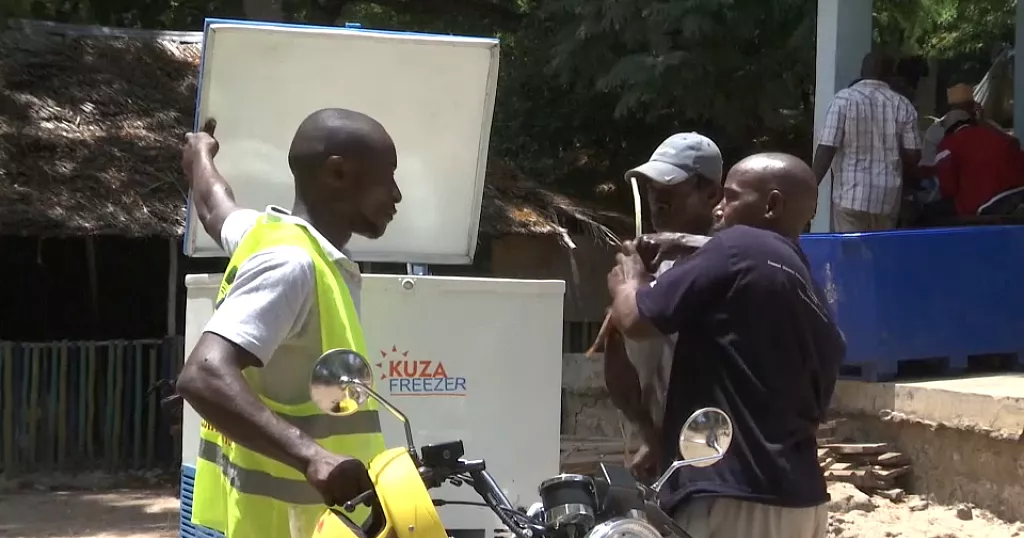In Kenya, a company is exemplifying the adage, “one person’s waste is another person’s treasure,” by transforming plastic waste into valuable assets.
On a February morning, a team of women gathers on a Mombasa beach to collect plastic waste, which will be repurposed to construct freezers.
The collected waste is sold to Kuza Freezer, where workers process it into pellets before molding it into cold storage units.
Each freezer is equipped with a battery that can be recharged using a solar panel.
With just a two-hour charge, the freezers can operate for up to seven hours.
“Kuza Freezer is a youth-led company based in Mombasa, Kenya. And we are focused on providing cold storage solutions to small-scale businesses in the fish value chain and enabling them to sustainably improve their income and reduce post-harvest losses,” says Purity Gakuo, CEO Kuza Freezer.
Kuza Freezers, operational for three years, has distributed over 350 units to various customers, including fish traders, poultry and milk vendors, and ice vendors.
Gakuo, a representative of the company, highlights the diverse range of products available, from static freezers for fishing boats to units suitable for installation at premises. Additionally, they offer a motorbike-mounted freezer with a 70-liter capacity, facilitating efficient fish delivery.
The company provides complimentary installation and training to customers, along with fitting each unit with a tracking device for maintenance monitoring.
Priced at Ksh 100,000 ($700), the freezers are available with installment payment options, proving to be a worthwhile investment for many.
For customers like Abdalla Ali, adequate storage is critical. Ali emphasizes the challenges faced with storing fish, particularly during transportation, where ice depletion and hot weather can jeopardize the quality and result in losses.
Nickson Otieno, CEO of a Nairobi-based sustainability consulting firm, underscores the significance of the product in addressing two major challenges in Kenya: pollution and hunger.
“Number one is the issue of food security resulting from food losses.
Food losses come about because we produce food which are perishable, but then we do not have enough infrastructure to deliver that food to the end consumers in time while it is fresh,” says Otieno.
“Secondly, we have a lot of issues of waste and especially plastic waste, which is choking our environment. By them taking up this waste, recycling it, and using it to make the external body of the freezers, also addresses the challenge of this waste,” the CEO of Nikogreen concludes.

